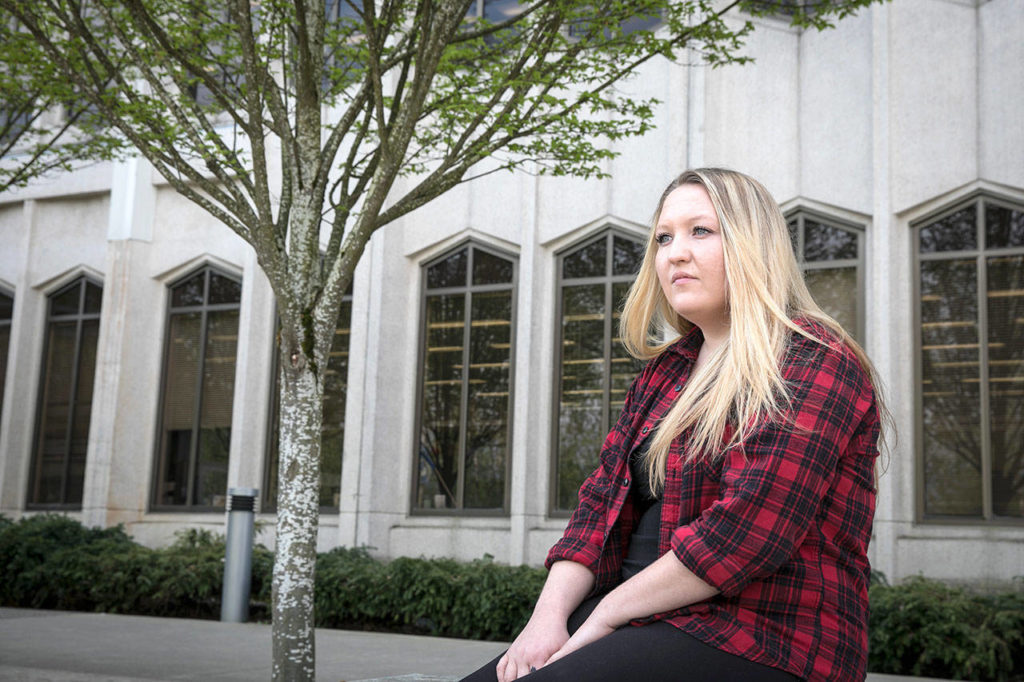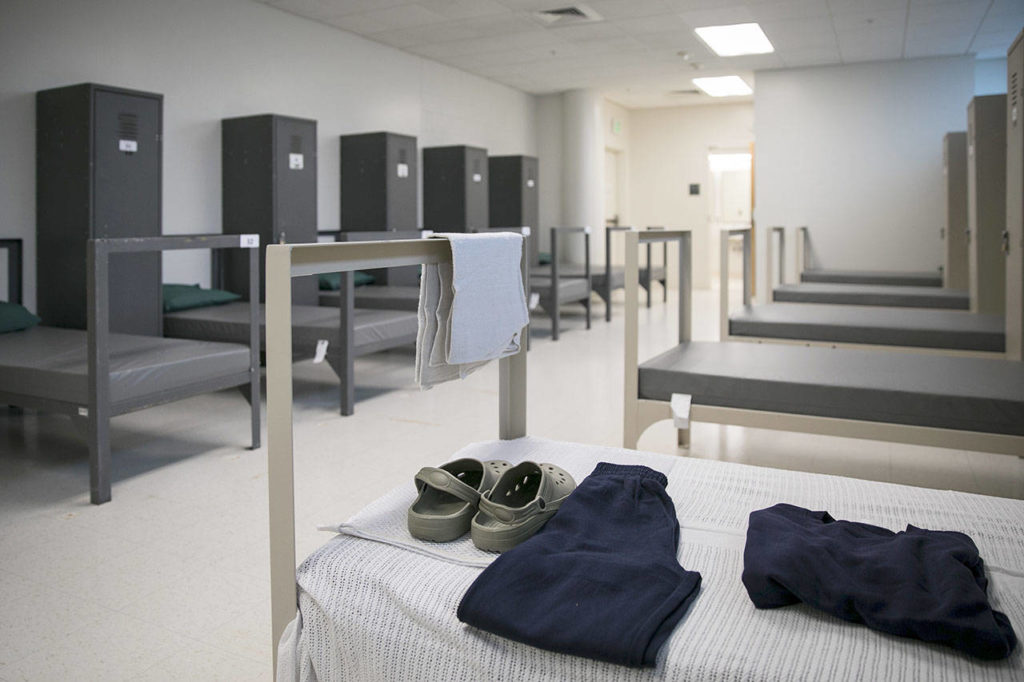EVERETT — Tears filled Angelica Soriano’s eyes as she relayed her story to U.S. Sen. Maria Cantwell sitting just across the table.
Soriano, 25, who until 13 months ago was using heroin, told Cantwell and other local officials gathered Tuesday at Snohomish County government offices what they already knew.
“Treatment is so hard to get into, the wait to get in kills you,” Soriano said.
Soriano recounted a time she was ready for help, but was told the wait for a bed in a treatment center was three months. Last year, after facing several felonies for theft, Soriano chose to enter drug court. But, she said, because of the lack of available beds, she had to detox in jail.
Cantwell’s stop in Snohomish County was one of many she made across the state to discuss the opioid epidemic and how the federal government might be more effective. The senator said she liked the partnerships she’s seen among the county’s public safety, health and human services officials to address the problem.
On the same day, county officials unveiled a new diversion center, envisioned as a launching pad to get people out of homeless encampments and connected to longer-term services.
The facility at 1918 Wall St. in downtown Everett, on the north side of the county jail, offers a potential way of bridging a homeless person’s initial desire to get help with the typically long wait for services.
Once the diversion center opens later this month, people could stay there 15 days, to connect with treatment programs for drug addiction or mental illness, housing assistance or basic health care.
The 44 beds are expected to fill up almost immediately.
“It’s basically not waiting for people to get arrested,” Sheriff Ty Trenary said. “It’s basically going to people who we know are in crisis and not waiting for a 911 call.”
The program is part of the county’s ongoing strategy to find better solutions than simply arresting people who wind up on the street.
“Our challenge is to not use law enforcement,” Trenary said. “Arrest and incarceration does not work.”
Referrals to the diversion center would come from teams of police and embedded social workers who focus on homeless encampments throughout the county. An estimated 95 percent or more of the people they encounter there have untreated drug addictions, primarily to heroin and other opioids.
Rep. Dave Hayes, R-Camano Island, who is also a Snohomish County sheriff’s sergeant, worked with his colleagues to secure $800,000 from the state to fund the pilot program.
“I would like to be able to demonstrate to the whole state that this is the way to go,” Hayes said. “The state needs to make a bigger investment. This is the start of it.”
The county also is using money from a one-tenth of 1 percent sales tax for chemical dependency and mental health services. The estimated yearly cost to run the program is $1.5 million.
To gauge success, the county will report back to the state on how people who use the diversion program fare in terms of recidivism, stable housing, drug treatment and connection to other services.
Once in the program, people won’t be able to come and go freely.
“If you have an open-door policy, people will go out, they will come back with drugs,” said Cammy Hart-Anderson, a division manager with the county’s human services department.
It isn’t jail either, so participants could leave voluntarily.
The county has contracted with Seattle-based Pioneer Human Services to run the facility around the clock. On arrival, staff will give people entering the program a medical screening. Emergency medical technicians and counselors will be on hand.
The diversion program is one of several approaches that the sheriff’s office, social workers and local health officials have been exploring as more effective alternatives to combat crimes stemming from drug abuse and untreated mental illness. The jail had become a de facto dumping ground for people who needed treatment and medical care — a costly and ineffective way of confronting the problem.
This fall, the county expects to open the Carnegie Library building next door as a one-stop service center for employment, housing and other services.
County officials also envision converting unused portions of the Denney Juvenile Justice Center into a treatment facility for people with drug and mental health problems. The north Everett site would have 32 beds combined and could open in 2020, according to a recent update. The treatment center would have separate doors from the youth lockup.
In November, county health, law enforcement management officials rolled out a coordinated response to work together on the crisis, but they also could use some help from the federal government.
The round-table discussion with Cantwell focused on that part of the equation.
The senator highlighted bills she’s working on to increase penalties for pharmaceutical companies that negligently distribute opioid drugs or use misleading advertising to promote them. She also is seeking more federal dollars to support education, treatment and recovery.
Other ideas that came up in the local discussion included allowing more doctors to prescribe drugs to treat opioid addiction. Some officials also asked to expand the size of inpatient treatment facilities that can use federal dollars, now capped at 16 beds.
Cantwell promised to take the local suggestions for fighting the opioid crisis back to Washington, D.C.
“It kills too many Americans, it kills too many in Snohomish County,” she said. “We need better tools to handle this.”
Noah Haglund: 425-339-3465; nhaglund@herald net.com. Twitter: @NWhaglund.
Talk to us
> Give us your news tips.
> Send us a letter to the editor.
> More Herald contact information.



























